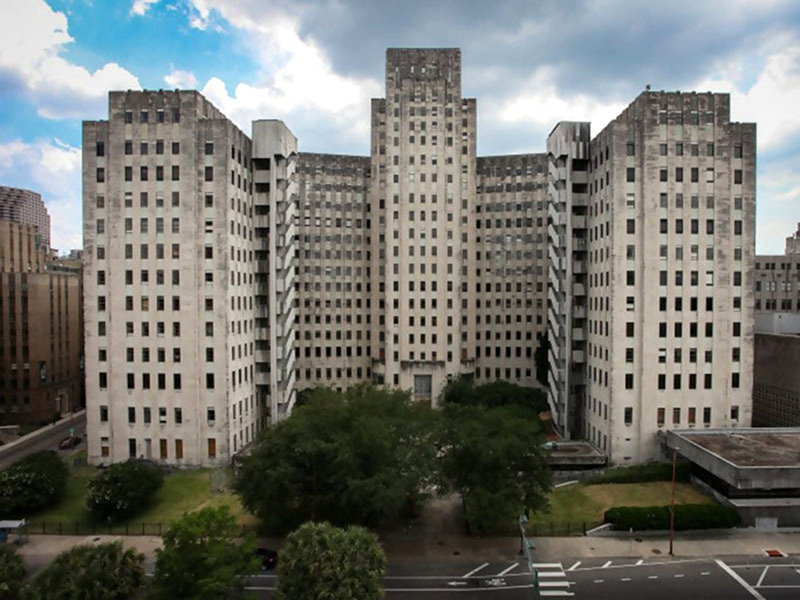Tulane SPHTM slated to move to redeveloped Charity site

Tulane is playing a significant role in the redevelopment of the Charity Hospital building, and the School of Public Health and Tropical Medicine will be a major occupant of the renovated building.
Tulane University recently announced its role in a major redevelopment of the former Charity Hospital building. When completed, the School of Public Health and Tropical Medicine is slated to move from its present location into the renovated facility.
Tulane University is working with developers 1532 Tulane Partners, Inc. and SKK Opportunity Zone Fund I, LLC, on the project that will result in Tulane initially occupying nearly 350,000 square feet through a long-term lease. The goal over the next few years is to transform Charity into a mixed-use complex with apartments, retail, educational institutions and other uses, all anchored by Tulane’s academic and research presence.
Tulane will occupy over a third of the building’s million square feet, serving as the core tenant and committing to and enabling the major redevelopment and reimagining of the iconic Tulane Avenue building, which has remained empty since Hurricane Katrina in 2005. Tulane will fill its portion of the building with spaces for research, teaching and administration. The School of Public Health and Tropical Medicine will be the primary Tulane occupant in the redeveloped Charity site.
“The School of Public Health and Tropical Medicine will move to what will be a state-of-the-art facility in a historic building that long served as a monument to public health in this state,” said Dr. Thomas LaVeist, dean of the school. “Charity Hospital has protected the health of the residents of the City of New Orleans through most of the city’s history. The hospital has been dormant since Hurricane Katrina. It seems fitting that Charity will once again be used to protect and serve the health of the people of New Orleans and the world.”
The Charity project is a central component of a major expansion of Tulane’s downtown campus in the heart of the city’s biomedical corridor. The goal is to place more labs and scientists together in an innovation district downtown where Tulane discoveries can come to market faster, launch spinout companies, support community startup talent, and attract outside investment designed to transform New Orleans into a hub of bioscience research. External funding for Tulane research has risen close to 50 percent over the last four years and is expected to increase another 50 percent over the next few years, supporting a robust startup community in the innovation district in the years to come.
“Our school of public health was the first such school in the U.S., and I believe this move will be another significant step in the school’s illustrious history. Our students will benefit greatly from the investment Tulane is making in the redevelopment of Charity and will propel our school into the very top echelons of public health education and research.”
Tulane and the project developers hope that the renewal of this New Orleans landmark will not only put one of the city’s most significant buildings back into commerce but also spur future development throughout the downtown area.
“Developing the building in a way that is true to the roots and spirit of the historic former Charity Hospital has been a guiding principle for Tulane University since this project’s inception,” shared Tulane COO Patrick Norton. “By ensuring this redevelopment is anchored by research labs searching for the newest discoveries and by public health and medical classrooms training the next generation of physicians and leaders in public health and healthcare — all in a space that is accessible and open to the community — we will remain true to those roots.”
The project developers, 1532 Tulane Partners and SKK Opportunity Zone Fund I, LLC, will spend the next two and a half years completing base building construction before Tulane develops and customizes its space with the goal of occupying the building in 2025. Special care will be taken to retain Charity’s iconic art deco facade, main lobby, second-floor auditorium and other historical characteristics while fully renovating the interior to realize the full potential of the building in a new way.
